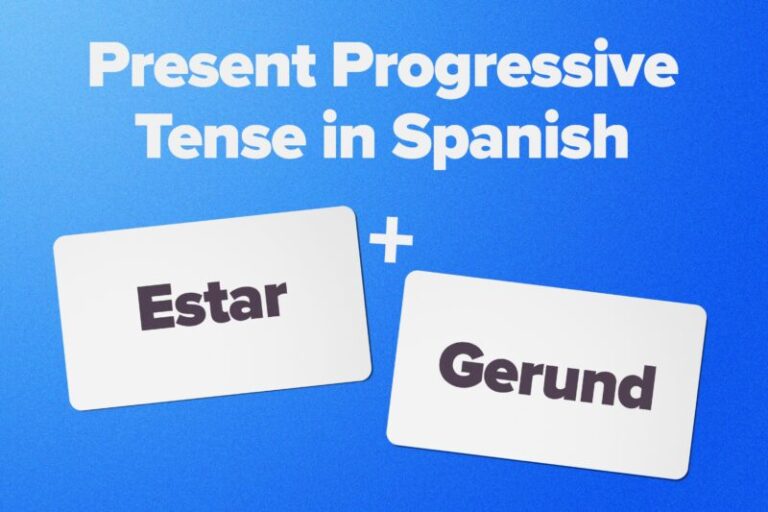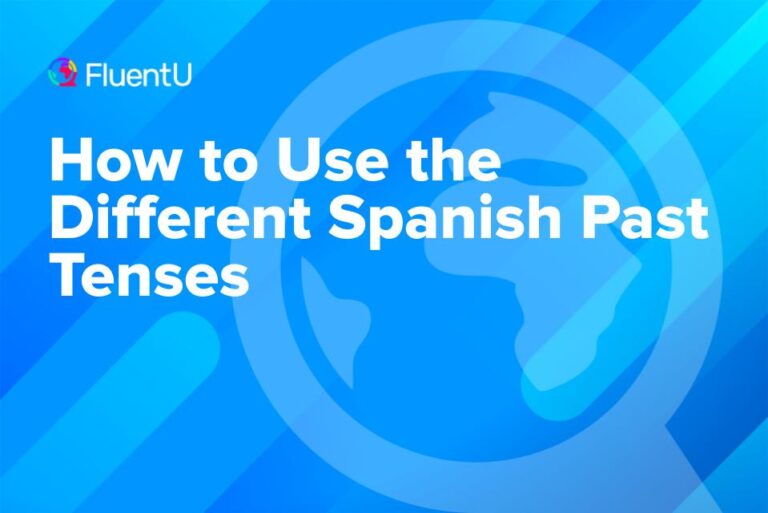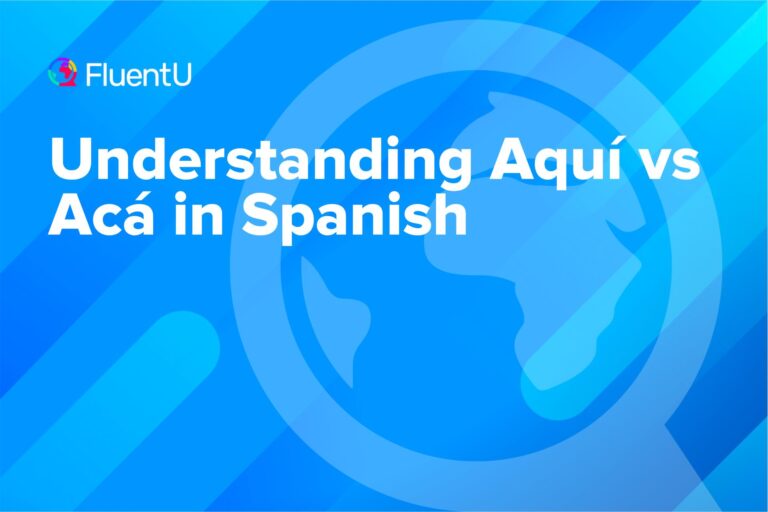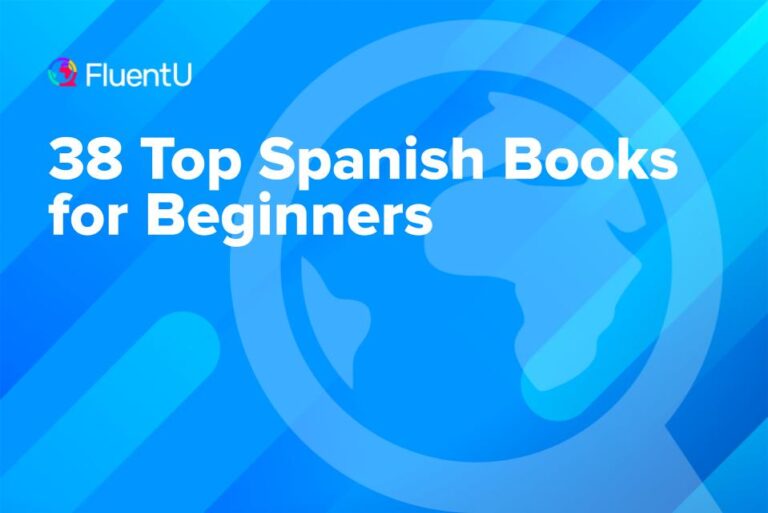Contents
- 1. Cachai
- 2. Sí Po / No Po
- 3. Pololo / Polola
- 4. Engrupir
- 5. Gorrear
- 6. Jote
- 7. Mina
- 8. Tocar el Violin
- 9. Cuico / Cuica
- 10. Pierna Peluda / Pierna Suave
- 11. Caña
- 12. Carrete
- 13. Carretear
- 14. Flaite
- 15. Fome
- 16. Bacán
- 17. Taco
- 18. Al Lote
- 19. Al Tiro
- 20. Harto
- 21. Luca
- 22. La Pega
- 23. Achacarse
- 24. Al toque
- 25. Buena onda
- 26. Chato / Chata
- 27. Gallo / Galla
- 28. La micro
- 29. Pasarlo chancho
- Why Learning Chilean Slang Will Improve Your Fluency
- And One More Thing…
29 Chilean Slang Words You’ll Hear in Chile
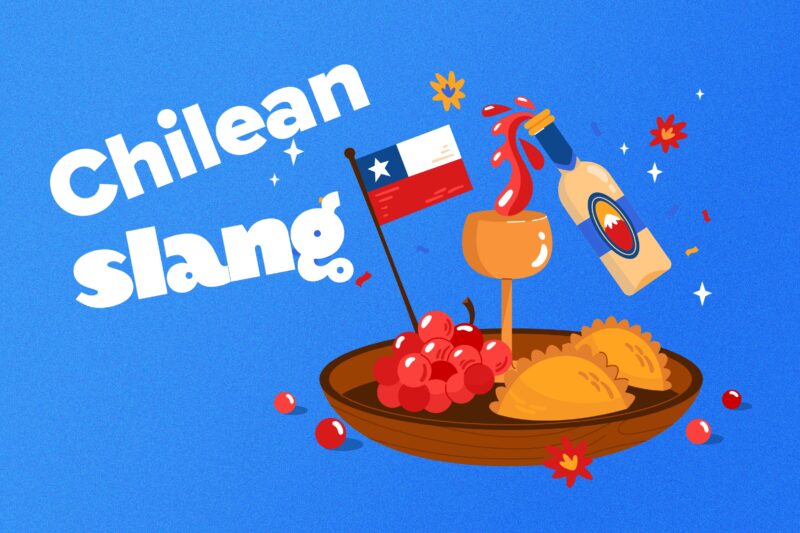
If you’re years deep into studying Spanish but still can’t grasp what the characters in your favorite Chilean telenovela are saying, it’s likely because you aren’t yet familiar with Chilean slang.
This blog post will introduce you to 29 Chilenismos — words and expressions exclusively used in Chile. Plus, examples that show how to use them.
Download: This blog post is available as a convenient and portable PDF that you can take anywhere. Click here to get a copy. (Download)
1. Cachai
Meaning: you know?
Chileans often end their sentences with cachai to make them casual or friendly. It means “You know?” or “You get me?”—very similar to the Canadian “eh?”
Ya no quiero salir esta noche, ¿cachai?
I don’t want to go out tonight anymore, you know?
You’ll hear this -ai sound at the end of many other verbs, too. That’s because Chileans often replace the usual tú (you) endings with –i. For example:
Tú hablas
(You speak) → tú hablai
Tú sabes
(You know) → tú sabí
Tú quieres
(You want) → tú querí
2. Sí Po / No Po
Meaning: yes/no
In Chile, you’ll hardly ever hear sí (yes) and no (no) by themselves. Instead, get used to hearing “sí po” and “no po.”
Po, which evolved from pues (well), is a common add-on to words and phrases.
Quieres ir a Chile conmigo? Sí po!
Do you want to go to Chile with me? Yes (of course)!
3. Pololo / Polola
Meaning: boyfriend/girlfriend
Novio or novia—the terms used in the rest of the Spanish-speaking world for “boyfriend/girlfriend”—in Chile refer to highly serious relationships like engagements and marriages.
Anything else, even year-long commitments, are pololo-worthy.
Mi pololo vive en Chile.
My boyfriend lives in Chile.
You can also use it as a verb, pololear, as in, “Estoy pololeando” (“I am dating”).
Estamos pololeamos.
We are going out/dating.
4. Engrupir
Meaning: to flirt (usually, successfully)
This slang word doesn’t just mean to hit on someone. It typically implies that the flirtatious person was successful.
Me engrupí esa mina.
I got that girl.
5. Gorrear
Meaning: to cheat (on someone)
El gorrea a su polola todo el tiempo.
He always cheats on his girlfriend.
6. Jote
Meaning: player
No está realmente interesado en ti, solo es un jote.
He’s not actually into you, he’s just a player.
7. Mina
Meaning: (attractive) young woman
Mira la mina allá
Check out that girl over there.
8. Tocar el Violin
Meaning: to third wheel
Toque el violin anoche.
I third-wheeled last night.
9. Cuico / Cuica
Meaning: upper-class
Cuico is both a noun and an adjective. It’s someone who comes from an upper-class background, and when used as an adjective, it describes someone who knows it and acts the part.
Es demasiado cuica para mi.
She’s too upper-class/preppy for me.
10. Pierna Peluda / Pierna Suave
Meaning: boyfriend/girlfriend
Another (rather astounding) way of referring to your male significant other, pierna peluda literally translates to “hairy leg.”
Female significant others can be called pierna suave which means “smooth leg,” since ladies tend to shave their legs.
Donde está tu pierna peluda?
Where’s your boyfriend?
Donde está tu pierna suave?
Where’s your girlfriend?
11. Caña
Meaning: hangover
Ay, que caña que tengo.
I have the worst hangover.
12. Carrete
Meaning: party (noun)
Be sure not to confuse carrete with the next slang word, carretear. This one is the noun rather than a verb, so you’d use it to refer to an actual party (otherwise known as a fiesta in standard Spanish).
Vamos a salir de carrete esta noche.
We’re going to a party tonight.
13. Carretear
Meaning: to party (verb)
Carretee todo el fin de.
I partied all weekend.
14. Flaite
Meaning: trashy
Que flaite este disco.
This club is so trashy.
15. Fome
Meaning: lame
Anímate, no sea fome.
Come on, don’t be lame.
16. Bacán
Meaning: awesome/cool
El carrete estuvo bacán.
The party was awesome.
17. Taco
Meaning: traffic jam
Taco is a short and sweet version of the longer trafico, which means “traffic jams.” Something you’ll likely encounter on your way to work—especially if you’re in Santiago.
Hay muchos tacos en Santiago.
There are lots of traffic jams in Santiago.
18. Al Lote
Meaning: “a hot mess,” disorderly or chaotic
El proyecto está al lote.
The project’s a mess.
19. Al Tiro
Meaning: right now/immediately
Mi jefa necesita que haga este proyecto al tiro.
My boss needs me to work on this project immediately.
20. Harto
Meaning: much/many
Hay harta gente en esta oficina.
There are so many people in this office.
21. Luca
Meaning: 1,000 pesos
Since Chilean money is counted in thousands, an easier way of talking about 10,000 pesos (the rough equivalent of $20 USD) is saying “10 lucas.”
El boleto cuesta una luca.
The ticket costs 1,000 pesos.
22. La Pega
Meaning: job
Me toca la pega.
I have to go to work.
23. Achacarse
Meaning: to be sad
Pablo se achacó cuando su novia rompió con él.
Pablo was sad when his girlfriend broke up with him.
24. Al toque
Meaning: right away
Like a few other Chilean slang words, this is also a slang word in Peru.
El taxista se fue al toque.
The taxi driver left immediately/right away.
25. Buena onda
Meaning: nice
Something is buena onda when it has a nice, good vibe.
Estoy conociendo a una chica, es buena onda.
I’m getting to know a girl, she’s very nice.
26. Chato / Chata
Meaning: tired, fed up
Estoy chata de tus excusas.
I’m tired of your excuses.
27. Gallo / Galla
Meaning: guy/girl
Ese gallo no sabe nada.
That guy doesn’t know anything.
28. La micro
Meaning: bus
La micro refers to public transportation in Chile, which is a bus or metro.
¿Cómo vamos al aeropuerto?
How are we getting to the airport?
Vamos a tomar la micro.
We’re going to take the bus.
29. Pasarlo chancho
Meaning: to have fun
Voy al cine con mi amiga en una hora.
I’m going to the movie theater with my friend in an hour.
¡Genial, pásalo chancho!
Great, have fun!
Why Learning Chilean Slang Will Improve Your Fluency
The real-world conversations you’ll have in Chile will be full of colloquialisms—something your Spanish textbooks can’t quite prepare you for.
From the moment the nosy taxi driver asks if you’re in Chile to visit a pololo or polola, to your first night out in Santiago enjoying a carrete (and waking up with a caña). You’ll be prepared to respond confidently, now that you’re well-versed in Chilean slang. You can learn even more slang by using this Chilean slang dictionary.
Until then, continue to practice Chilenismos and explore more by immersing yourself in Chilean content and talking to native speakers from home.
You can do so by using a program like FluentU.
FluentU takes authentic videos—like music videos, movie trailers, news and inspiring talks—and turns them into personalized language learning lessons.
You can try FluentU for free for 2 weeks. Check out the website or download the iOS app or Android app.
P.S. Click here to take advantage of our current sale! (Expires at the end of this month)

And now you’re set to go out into the world because hablai Chileno.
Download: This blog post is available as a convenient and portable PDF that you can take anywhere. Click here to get a copy. (Download)
And One More Thing…
If you've made it this far that means you probably enjoy learning Spanish with engaging material and will then love FluentU.
Other sites use scripted content. FluentU uses a natural approach that helps you ease into the Spanish language and culture over time. You’ll learn Spanish as it’s actually spoken by real people.
FluentU has a wide variety of videos, as you can see here:

FluentU brings native videos within reach with interactive transcripts. You can tap on any word to look it up instantly. Every definition has examples that have been written to help you understand how the word is used. If you see an interesting word you don’t know, you can add it to a vocab list.

Review a complete interactive transcript under the Dialogue tab, and find words and phrases listed under Vocab.

Learn all the vocabulary in any video with FluentU’s robust learning engine. Swipe left or right to see more examples of the word you’re on.

The best part is that FluentU keeps track of the vocabulary that you’re learning, and gives you extra practice with difficult words. It'll even remind you when it’s time to review what you’ve learned. Every learner has a truly personalized experience, even if they’re learning with the same video.
Start using the FluentU website on your computer or tablet or, better yet, download the FluentU app from the iTunes or Google Play store. Click here to take advantage of our current sale! (Expires at the end of this month.)
